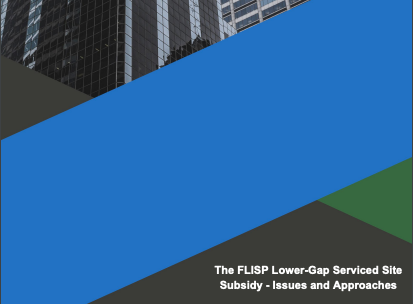The FLISP Lower-Gap Serviced Site Subsidy
Issues and Approaches

One of the main challenges to addressing the current housing backlog in the Western Cape is the inability to supply housing products that are affordable to most of the population. This affordability problem is largely driven by the high cost of housing and the inability of households to afford the upfront payment of housing. An incremental approach could, however, overcome some of these drivers. As a result, this report investigates why there has been a limited roll-out of FLISP-related incremental housing policies despite the perceived benefits thereof. The policies allow the provision of free serviced sites to households in the lower gap housing market which qualify to receive the sites in lieu of FLISP mortgage deposit subsidies.
The report finds that there are both supply-side and demand-side issues undermining the successful roll-out and take-up of this programme and therefore any proposed housing delivery system will need to be designed in a manner that addresses them. The main supply-side constraints include the limited land supply, high product standards, finance costs and availability, contractor capabilities, infrastructure constraints and the lack of household technical support. The demand-side constraints include community and consumer resistance, the inability of households to raise affordable finance, and the limited quantum of the subsidy amount.


Comments